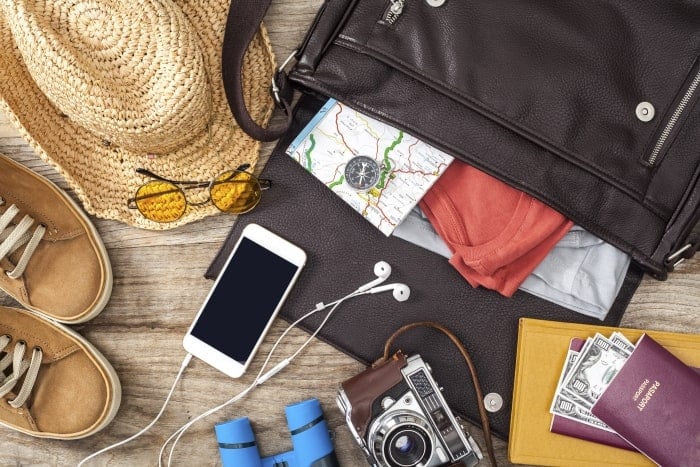Travel can be one of life’s greatest adventures, but nothing dampens the excitement quite like realizing you’ve forgotten something important halfway through your journey. Whether you’re planning a weekend getaway or an extended international trip, having the right essentials packed can make the difference between a smooth, enjoyable experience and a stressful ordeal filled with last-minute shopping trips and unnecessary complications.
Choosing the perfect destination and booking the best flights are not the only keys to successful travel, but also thoughtful preparation that covers all essentials. From comfort items that make long flights bearable to safety essentials that protect your health and well-being, each category of travel gear serves a specific purpose in ensuring your trip goes according to plan.
This comprehensive guide will walk you through the most important travel essentials across five critical categories, helping you create a foolproof packing strategy that covers everything from basic comfort needs to emergency preparedness. By the end of this article, you’ll clearly understand what to pack for any type of trip, ensuring you’re prepared for whatever adventures await.
Essentials for Comfort
Your comfort during travel directly impacts your overall experience, and investing in the right comfort essentials can transform even the longest journey into a pleasant part of your adventure. A quality travel pillow tops the list of must-have comfort items, particularly for flights or long car rides where proper neck support can prevent stiffness and help you arrive feeling refreshed rather than exhausted.
Comfortable, well-fitting clothing appropriate for your destination’s climate forms the foundation of travel comfort. Pack layers that can be easily added or removed as temperatures change, and always include one warm layer even for warm-weather destinations, as air conditioning in planes, hotels, and restaurants can create surprisingly chilly environments. Comfortable walking shoes are non-negotiable, especially if your trip involves exploring cities or hiking. Break in new shoes before your trip to avoid blisters and discomfort.
A lightweight, compact blanket or large scarf can serve multiple purposes throughout your journey. Use it for warmth on cold flights, as a makeshift pillow, or even as a clean surface to sit on in airports or parks. Eye masks and earplugs are small items that pack easily but provide enormous value for travelers who need to sleep in unfamiliar environments or during unconventional hours.
Health and Safety
Protecting your health and safety while traveling requires proactive preparation and the right supplies to handle common issues that arise away from home. A well-stocked first aid kit tailored to your destination and planned activities serves as your first line of defense against minor injuries and illnesses that could otherwise derail your trip.
Your first aid kit should include basic medications like pain relievers, anti-diarrheal medication, antihistamines, and any prescription medications you take regularly. Pack prescription medications in their original containers with extra supplies in case of delays, and carry a copy of your prescriptions in case you need refills while traveling. Include bandages, antiseptic wipes, and any specific medical supplies related to chronic conditions you manage.
Hand sanitizer and disinfecting wipes have become essential travel companions, allowing you to maintain excellent hygiene when soap and water aren’t readily available. These items are particularly important for cleaning frequently touched surfaces like airplane tray tables, hotel remote controls, and rental car steering wheels.
Tech and Entertainment
Modern travel relies heavily on technology for navigation, communication, and entertainment, making tech essentials crucial for a smooth trip. Portable chargers and power banks ensure your devices stay powered throughout long travel days when outlets may be scarce or inconveniently located. Choose chargers with multiple ports to handle all your devices simultaneously.
Universal adapters become necessary for international travel, allowing you to use your electronic devices regardless of the outlet configurations in your destination country. Research your destination’s plug types in advance and invest in a quality universal adapter that covers multiple regions if you travel frequently.
Headphones serve multiple purposes beyond entertainment, providing noise cancellation during flights, allowing private phone conversations in public spaces, and enabling you to enjoy movies or music without disturbing other travelers. Consider noise-canceling options for flights and long transport days.
Documents and Finances
Proper documentation and financial preparation form the administrative backbone of successful travel, requiring careful organization and strategic planning. Your passport should be valid for at least six months beyond your planned return date for international travel, and you should carry copies of important documents stored separately from the originals.
Create digital and physical copies of your passport, driver’s license, travel insurance, hotel confirmations, and flight information. Store digital copies in cloud storage accessible from any device, and carry physical copies in a separate location from your original documents. This redundancy protects you if documents are lost or stolen.
Financial planning extends beyond simply bringing enough money for your trip. Notify your bank and credit card companies of your travel dates and destinations to prevent fraud alerts from blocking your cards when you try to use them abroad. Research foreign transaction fees, and consider getting a travel-friendly credit card if you travel internationally frequently.
FAQs
1. How far in advance should I start preparing my travel essentials?
Begin gathering your travel essentials at least two weeks before departure for domestic trips and one month for international travel. This timeline allows you to purchase any missing items, break in new shoes or clothing, and handle any prescription medication needs without rushing.
2. What’s the best way to pack travel essentials in my luggage?
Distribute essential items between your carry-on and checked luggage to ensure you have access to critical items if your checked bag is delayed. Pack medications, important documents, a change of clothes, and basic toiletries in your carry-on. Use packing cubes or organizational systems to keep items easily accessible.
3. How do I know what specific health and safety items I need for my destination?
Research your destination’s health requirements and recommendations through official sources like the CDC’s travel health website or your country’s foreign affairs department. Consult with a travel medicine clinic if you’re visiting areas with specific health risks or vaccination requirements.
4. Should I buy travel insurance, and what should it cover?
Travel insurance is highly recommended, especially for international trips or expensive vacations. Look for coverage that includes trip cancellation, medical emergencies, emergency evacuation, and lost or stolen belongings. Read policy details carefully to understand exclusions and coverage limits. e.




